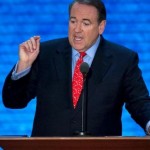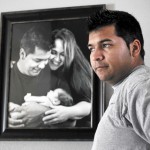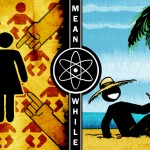Every Friday in Sacred Space, Brad Williams explores the place of popular culture in the local church.
Christians are a people who are only supposed to know one great fear: The fear of the Lord. In all other areas of life, we are to be utterly fearless. We believe that we serve an Almighty God who watches over us with intense interest, and always acts for our greatest good. He loves us so greatly that He sent His Son to rescue us from sin and death, and He has promised to carry us from cradle to grave. We revere Him because He is the giver of life and Creator of all things; we tremble because He is holy and we are not. We rejoice that we do not stand because of our own holiness, but because of the holiness of Christ that is given to us by faith.
What does this have to do with pop culture and the church? It seems to me, especially in this election season, that we live in a fearful culture. We are fearful of terrorist attacks, of corporate greed, of government spending, of genetically engineered beef and vegetables, of Iran, of the Taliban, and of our wealth evaporating. We are afraid for our children to play unsupervised. We are afraid of what might happen. America is afraid.
Our politicians capitalize on this fear. Recently, the Republican hopefuls all talked about how “their administration” would not piddle around with Iran like President Obama’s administration has done. What would they do? Well, we don’t really know, but we know that they would piddle around! Why do they say these things? Because they know we are scared, and they want to put themselves forward as the man who can protect us from what makes us afraid.
Each Republican candidate talks about how awful the economy is, and they point a finger to Greece and declare that if we don’t do something (like elect them!) we will surely wind up as destitute as Greece. The problem is, each candidate has a different idea of how to fix the economy, leaving us to wonder if anyone really has the answer. So we fear.
Your church ought to be an antidote to your fear. When we witness a baptism, we ought to remember that we are all already dead. Dead to our self and dead to this world. We are raised with Christ. For 2,000 years, our brothers and sisters have been baptized into the kingdom. Our family has endured war, famine, poverty, riches, the building of governments, and the fall of civilizations. Yet they endured to the end, and the King welcomed them home.
At church, you ought to remind people that our Savior was homeless, and yet he managed to survived. We ought to remind one another that our Father clothes the flowers and feeds the birds, and that He does not suffer the righteous to go hungry. We ought to remind each other in our community that, no matter what, we have each other’s back. That we are family. We cry with one another. We laugh with one another. And we will never abandon each other, just as our Lord will never abandon us. That’s what we ought to be about in church. I am glad for the politicians who serve the public interest; they are ordained of the Lord. But they ought not presume that they have all the answers, and neither should we.
“I tell you, my friends, do not fear those who kill the body, and after that have nothing more that they can do. But I will warn you whom to fear: fear him who, after he has killed, has authority to cast into hell. Yes, I tell you, fear him! Are not five sparrows sold for two pennies? And not one of them is forgotten before God. Why, even the hairs of your head are all numbered. Fear not; you are of more value than many sparrows” (Luke 12:4-7).











